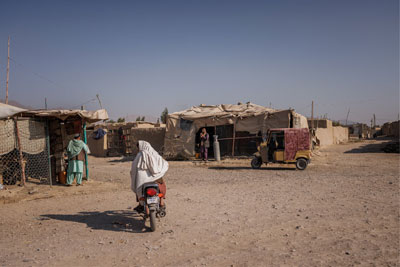For decades, roughly a thousand families called the low-slung mud-walled neighborhood of Firqa home. Some moved in during the 1990s civil war, while others were provided housing under the previous government.
Soon after the Taliban takeover on Aug. 15, the new government told them all to get out.
Ghullam Farooq, 40, sat in the darkness of his shop in Firqa last month, describing how armed Taliban fighters came at night, expelling him at gunpoint from his home in the community, a neighborhood of Kandahar city in southern Afghanistan.
“All the Taliban said was: ‘Take your stuff and go,” he said.Those who fled or were forcibly removed were quickly replaced with Taliban commanders and fighters.
Thousands of Afghans are facing such traumatic dislocations as the new Taliban government uses property to compensate its fighters for years of mili-tary service, amid a crumbling economy and a lack of cash.
Over decades, after every period of upheaval in Afghanistan, property becomes a crucial form of wealth for those in power to reward followers.
But this arbitrary redistribution also leaves thousands displaced and fuels endless disputes in a country where the land ownership system is so informal that few people hold any documentation for the ground they call their own. ImageGhullam Farooq’s shop, left, in Firqa, a neighborhood of Kandahar city.
Ghullam Farooq’s shop, left, in Firqa, a neighbor-hood of Kandahar city. A farm’s fields cultivated to grow opium poppies, irrigated via solar-powered pumps, in Musa Qala.
A farm’s fields cultivated to grow opium poppies, irrigated via solar-powered pumps, in Musa Qala.
Just as during past changes in government, distribut-ing property to Taliban disciples in swaths of rural farmland and in desirable urban neighborhoods has turned into at least a short-term recourse to keep stability within the Taliban ranks.
“Who has the guns gets the land,” said Patricia Gossman, the associate Asia director for Human Rights Watch.
“It’s an old, long continuing story.”In a largely pastoral nation split by rugged mountain ranges, dotted with deserts and little forest, land is one of the most important assets and a flashpoint, fueling blood feuds between neighbors, ethnic groups and warlords as power has changed hands.
Conflicting legal systems dictating land ownership and a lack of documentation have further destabi-lized the property market through the generations.—Agencies










